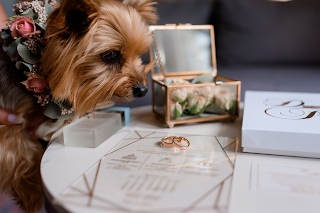Are the words "koga, kome & kim" the same as who?
In the previous post about Question words in Serbian, I covered just the main bunch of questions, such as ko, šta, gde, kada, zašto, kako, čiji, koliko. Today we are focusing only on WHO and its many forms. To understand and start using them correctly, you'll need to practice them in context first.
Serbian WHO through cases
- KO - who
- KOGA - of whom
- KOME - to whom
- KOGA - whom
- SA KIM - with whom
- O KOME - about whom
The question words in Serbian take the case endings similar to adjectives, so once you learn how adjectives change through cases, this would come natural. Also, you can learn the question forms first they will help you when start learning about how adjectives change through cases. However, when learning Serbian, always start from drilling, playing language games and having fun, and only later try to dwell on grammar, when drilling through Quizlet games helps you achieve fluency :)
Translation of Various Who Forms
Explanation
- KO UČI SRPSKI? - Who is learning Serbian?
- KO JE UČIO SRPSKI? - Who was learning Serbian?
- KO ĆE UČITI SRPSKI? - Who will learn Serbian?
- KOGA SE PLAŠIŠ? - Who are you afraid of?
- KOGA SMO SE PLAŠILI? - Who were we afraid of?
- KOGA ĆEMO SE PLAŠITI? - Who will we be afraid of?
- KOME ODGOVARATE? - Who are you answering to?
- KOME SMO ODGOVORILI? - Who did we answer to?
- KOME ĆEMO ODGOVORITI? - Who will we answer?
- KOGA VIDIŠ? -Who do you see?
- KOGA STE VIDELI? - Who did you see?
- KOGA ĆETE VIDETI? - Who will you see?
- SA KIM IDEŠ NA MORE? - Who are you going to the seaside with?
- SA KIM SI IŠAO NA MORE? - Who did you go / were you going to the seaside?
- SA KIM ĆEŠ IĆI NA MORE? - Who will you go / will you be going to the seaside with?
- O KOME PRIČAŠ? - Who are you talking about?
- O KOME SI PRIČALA? - Who did you talk / were you talking about?
- O KOME ĆEŠ PRIČATI? - Who will you talk about?
Exercises with Who: ko - koga - kome - sa kim - o kome
MATCH igrica
FLASHCARDS
TEST
Video Lesson with Who in Serbian
Additional Exercises with All the Question words as well as Who Forms
MATCH igrica

.png)
















